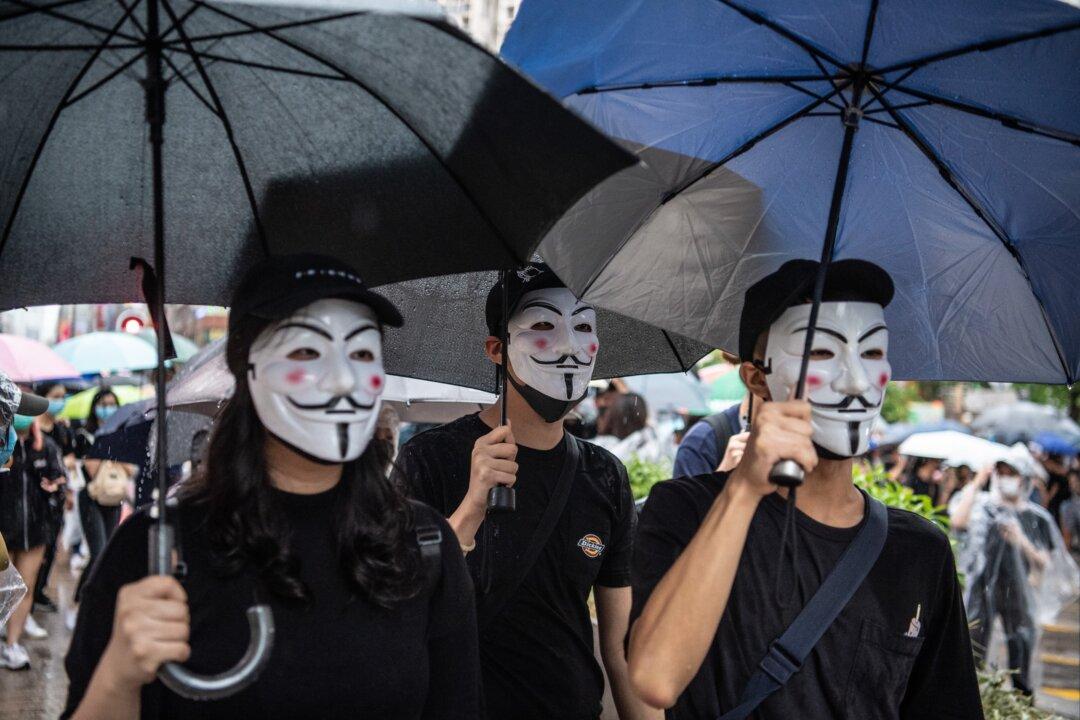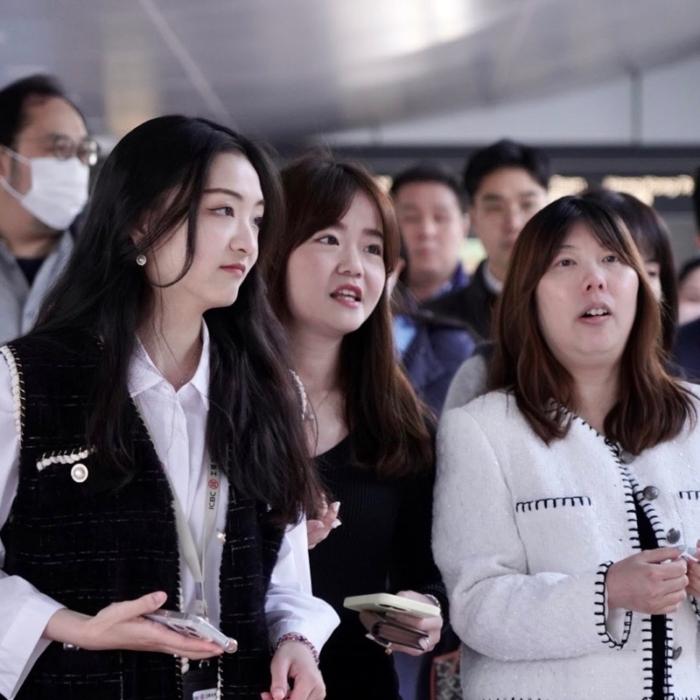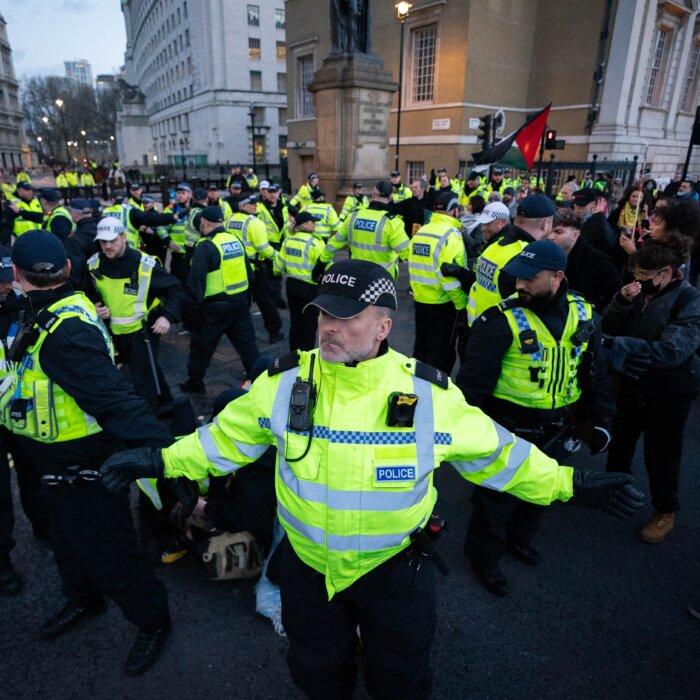A former Labour MP and political adviser to the Home Office has on Sunday recommended a ban on masks at public protests.
Lord Walney, the former MP for Barrow, was appointed as an independent adviser on political violence and disruption in 2020 by the then-Prime Minister Boris Johnson, and the following year was asked to conduct a review into countering political violence and disruption.
Lord Walney submitted the 100,000-word review just before Christmas and it is due to be published later this month.
He has previously argued the police should be able to charge organisers of protests for the cost of policing demonstrations.
Jenrick and Patel Back Mask Ban
Former Home Secretary Priti Patel told The Sun on Sunday she supported the ban and former Home Office minister Robert Jenrick—who resigned last month over the details of the Rwanda policy—told the paper, “Face coverings are being deliberately used by law-breakers to disguise themselves and intimidate the public.”He said: “The impunity for extremists on our streets must end. A ban on face coverings will drive up arrests and successful prosecutions, ensuring extremists face the full force of the law.’’
During pro-Palestine marches several of those who shouted allegedly anti-Semitic slogans were wearing ski masks or balaclavas to defeat police efforts to identify them.
The police already have the power, under the 1994 Criminal Justice and Public Order Act, to order people to remove masks in a small geographical area if they believe there is a risk of violence or disorder.
But Lord Walney is understood to have recommended a complete ban on all face coverings during public protests.
If the organisers of the protest refuse to remove masks, the police would be legally entitled to stop the march from taking place.
It is not clear if the recommendation would include an exception for Muslim women who wear burkas or niqabs, which include full-face veils.
The widespread wearing of masks by protesters intent on violence dates back to the anarchist organisation, Black Bloc, which clashed with police at G-8 summits in Seattle in 1999, Gothenburg in 2001, and Genoa in 2005 during protests against globalisation.
Last month Lord Walney—who resigned from Labour in 2018 and stood as an independent MP before standing down before the 2019 election—wrote on X: “Pleased to send my completed review to government officials today ahead of it formally going to PM and home secretary next month. Includes additional review of protests in UK since October 7 massacre. 100,000 words and 40 recommendations to be published in new year.”
Hong Kong Banned Masks in 2019
In October 2019 the government of Hong Kong introduced a ban on masks in an effort to suppress pro-democracy protests by demonstrators angry at Beijing’s encroachment into the former British colony’s affairs.Lord Patten, the last British governor of Hong Kong, inferred Ms. Lam had been pressured by Beijing and said: “She would have to be crazy to be making these decisions on her own without being pressured into them. The face mask business, absolutely madness.”
U.S. Sen. Marco Rubio (R-Fla.) wrote on Twitter: “Rather than focusing on finding a political solution to the on-going situation in Hong Kong, Carrie Lam uses emergency ordinance to ban masks. The government of Hong Kong should reconsider its priorities if it wants to remain a global hub.”
The ban on masks in Hong Kong was only lifted in February 2023.
A Home Office spokesman told The Sun on Sunday: “The independent review into political violence and disruption, led by Lord Walney, aims to increase the UK government’s understanding of the increase in activity amongst the far-right, far-left, and other political groups, and the points at which their activities can cross into criminality and disruption. We will respond to the report’s recommendations in due course.”







